"Rare is the museum that not only informs and entertains, but also moves you almost to tears with the treatment of its subject. I didn't know much about Andrew Carnegie when I came here, but I left a wiser man and that's no small feat. Go, see the small, humble room where he was born - then go downstairs to the hall and read about his accomplishments, his philosophy, his talents. Carnegie financed almost 3,000 libraries around the world, leaving only one stipulation: That each one should contain, prominently, the words "Let there be light". This museum shines that light."
And that just about sums it up. It is clear from the start that someone born into a tiny house in the poorer parts of a small Scottish town and subsequently rises to become possibly the wealthiest man in the world, has to have some special talents. This was the room the family shared. Here they made their meals, here the kids played, here the father had his little office.
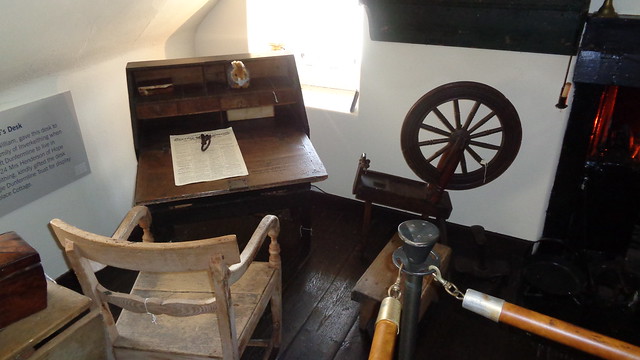
The tiny fireplace where food was cooked.
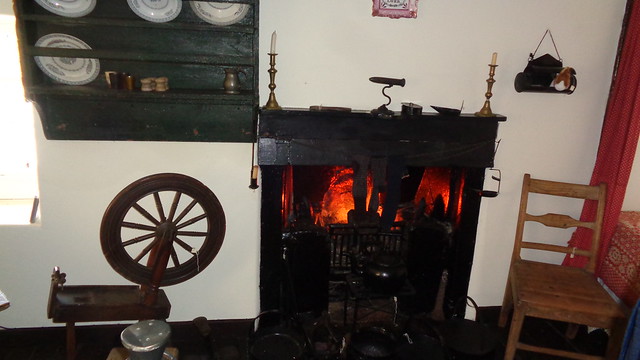
The bed where Andrew Carnegie was born, and where he later slept.
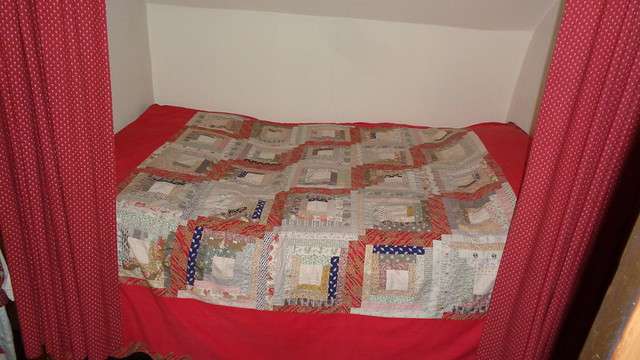
Here, his parents worked the infernal contraption that would produce clothes. They soon fell on hard times, like most of the country. His father more or less went bankrupt and his mother had to work extra hours as a cobbler. They left for better opportunities in the US in 1848, when Andrew was not yet 13.
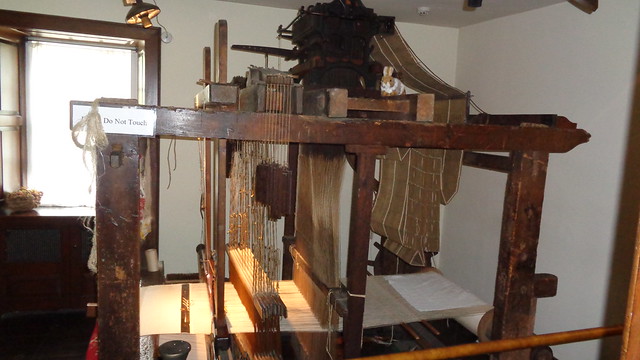
Andrew got a job in a cotton mill, working 48 hours a week. He was then hired as a messenger boy for the telegraph and in short time was promoted to operator. He had a special talent; at the time, the telegraph worked like this: A message would come in, ticking long and short taps on the line. The sounds were turned into dots and lines on tiny slips of paper and then translated by someone qualified to read them. Andrew was, according to the museum, one of twelve people in the US at the time who could translate directly from what he heard on the line to letters on paper. This meant he had an advantage over all the other messengers in terms of getting the word out to his customers. Additionally, he memorized the location of all the major businesses in town and the faces of all the important people. Pretty soon, he had a network of rich and powerful people to aid him. One of them opened his huge library for young Andrew, and the boy read voraciously. It was here he resolved that should he ever become rich, he would open libraries so that other poor boys could enjoy the same fortunes he'd had. Eventually he was hired by the Pennsylvania Railroad Company as their operator and soon had enough cash to make modest investments. The returns he got convinced him to stop working for the railroad and start up for himself, investing in all sorts of businesses, but mainly in steel. When he sold his large business empire in 1901, it was for as sum corresponding to almost $14 billon in 2016 money. He spent the last 18 years of his life giving away the money, mostly to build libraries and educational institutions.
Carnegie in his study.
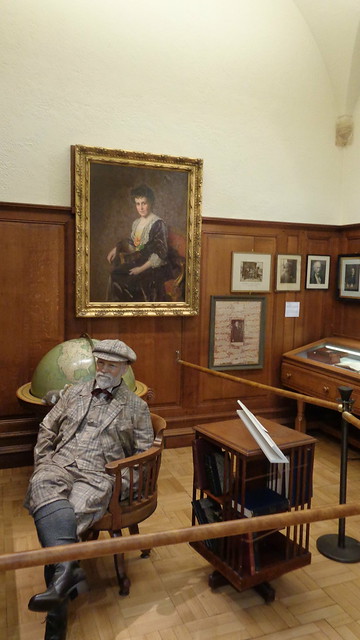
There's tons of info on his many exploits in business and philantropy at the birthplace museum.
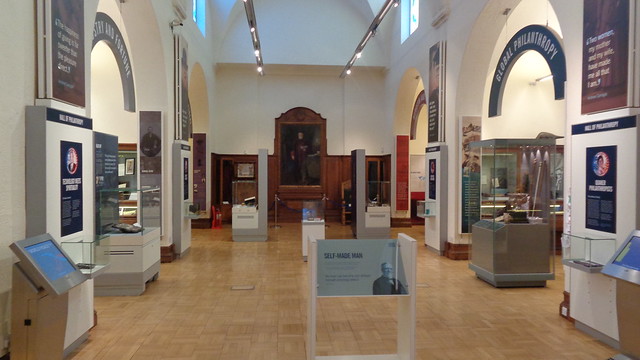

No comments:
Post a Comment